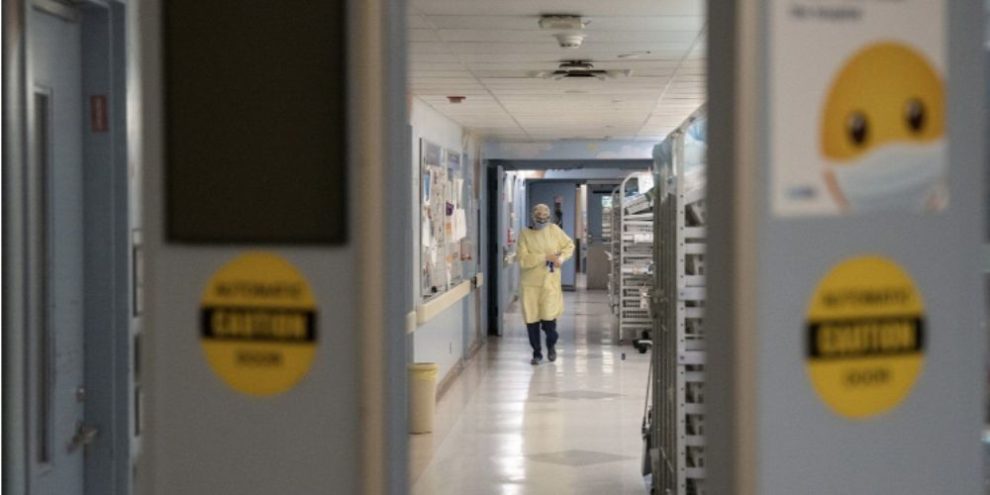
By Liam Casey in Toronto
Ontario has no central plan to help hospitals tackle nurse shortages that lead to temporary emergency department closures, the province's acting auditor general found, while a significant portion of ER patients are only there because they don't have a family doctor.
The findings are contained in the annual report released Wednesday by the Office of the Auditor General of Ontario, which urges the government to develop a plan to address ER closures.
There were more than 200 unplanned temporary emergency department closures in 23 Ontario hospitals between July 2022 and June 2023 due doctor and nurse shortages, the report found.
Amid that strain on the system, one in five patients who visited ERs were only there because they did not have a family doctor, and they did not need urgent care, it found.
Acting Auditor General Nick Stavropoulos said the government had no central plan to help hospitals maintain nurse staffing levels to avoid ER closures, nor was there a provincewide strategy on staffing issues in long-term care homes.
"Instead, the ministry and Ontario Health generally relied on hospitals to manage these situations independently, typically by closing their emergency department or using more-expensive agency staff where possible," said the report.
"A provincewide strategy to help hospitals and long term care homes maintain appropriate staffing levels is critical for the sector's success moving forward."
In looking at patients at emergency departments, the auditor's report found about one in five, or or 1.29 million people, were deemed less urgent or non-urgent cases, which further exacerbated a stretched system.
"The lack of primary care is another major factor" contributing to increased wait times in ERs, Stavropoulos said.
The lengthy annual report contains 12 value-for-money audits. Four of the audits focused on health care, including an examination of emergency departments, health care in northern Ontario, the state of long-term care homes and Public Health Ontario.
Neither the health ministry nor Ontario Health — which oversees the health system — collected or tracked information on staffing shortages, Stavroploulos said. The lack of a strategy continues to put a "strain on hospitals," he said.
"This means that patients are less likely to receive timely care when they need it," he said.
Health Minister Sylvia Jones did not answer questions about the lack of a plan to deal with the hospital and long-term care staffing crunch.
"Our pressures continue to remain on the nursing side, which is exactly why we have the programs like learn and stay," she said. "We're building a stronger health-care system, but it does take time."
Jones cited changes to a temporary locum program that sees out-of-town doctors fill shifts in largely rural and remote northern Ontario hospitals that has helped decrease unplanned closures. She also said 15,000 nurses were registered in the province last year, calling it a "historic" number.
The staffing shortages have left patients waiting longer in emergency departments. Some patients are waiting for more than 24 hours for an in-patient bed. And 5.3 per cent of patients who go to emergency departments give up and leave, the report found.
Stavropoulos found hospitals are becoming more reliant on nursing agencies to fill staffing gaps, which comes at a significantly higher cost.
Nurses at private, for-profit nursing agencies can get paid more than $75 an hour compared to the $35 to $50 per hour that full-time hospital nurses make.
"There has been no legislation that caps the amount for-profit staffing agencies can charge to hospitals," the report said.
Jones did not commit to capping fees nursing agencies charge and said the province is seeing the opposite, "a decrease in the use of staffing agencies."
"We're looking at many different pathways," Jones said.
"We do not want to limit hospitals and operators in home and community care the ability to actually provide the staff and the services that they need."
A lack of triage nurses for patients coming in by ambulance prevents paramedics from returning to the road quickly, leading to what's known as off-load delays, Stavropoulos said.
Some hospitals have worked with paramedic services to improve turnaround times, but not all hospitals have done so.
"Unique diversion practices that have helped some emergency departments handle patient flows more efficiently were often not shared with other hospitals," the report said.
"What’s more, the ministry and Ontario Health also did not have a framework in place to track, evaluate and encourage the use of these effective strategies."
Within an hour of Stavropoulos's news conference about his findings, the government announced a new auditor general, Shelley Spence.
Banner image: THE CANADIAN PRESS/Chris Young
This report by The Canadian Press was first published Dec. 6, 2023.





